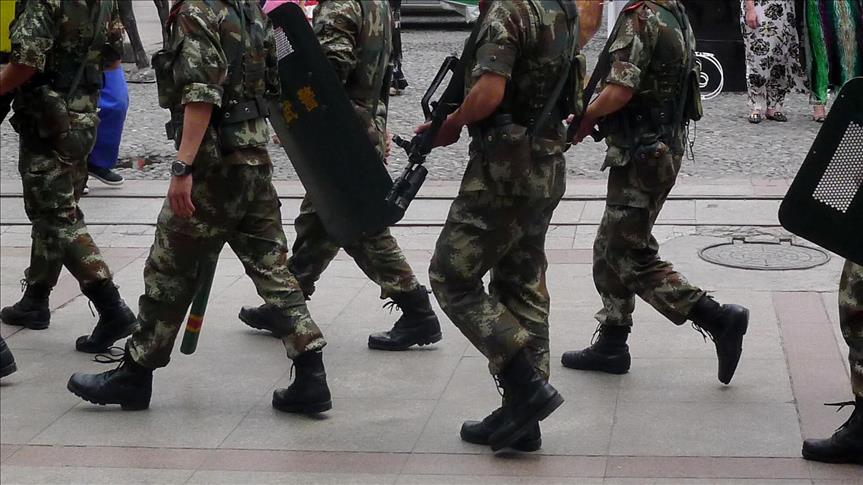Curfew imposed after clashes near Myanmar-China border
Alliance of three armed groups uninvolved in Myanmar's peace process attack police outposts early Sunday

By Kyaw ye Lynn
YANGON, Myanmar
The government of Myanmar has imposed an immediate dusk-to-dawn curfew in northeastern Shan State after four ethnic rebel groups launched a joint offensive.
At least eight people died and several others were injured Sunday as rebels attacked military checkpoints, police outposts and the 105th Mile Trade Zone in Muse in Myanmar's restive Shan near the country's northern border with China.
A statement from the State Counselor Office said that the armed offensive involved the Kachin Independence Army (KIA), Ta-ang National Liberation Army (TNLA) and Myanmar National Democratic Alliance Army (MNDAA).
“The curfew was imposed from 6 p.m. to 6 a.m. in the area,” it said, adding that one soldier, three police officials, one militia member and three civilians were killed in the attacks.
The over 600-strong army began three separate offensives in the area Sunday, and destroyed two bridges on Mandalay-Muse highway, it said.
It added that the groups retreated after the security force launched counter-attacks.
On Sunday evening, the KIA, TNLA, MNDAA and the Arakan Army (AA) – none of which have signed a recent government-sponsored Nationwide Ceasefire Agreement (NCA) -- issued a joint statement urging civilians to refrain from traveling in the area.
Tar Aik Kyaw from the TNLA’s News and Information Department underlined to Anadolu Agency that the attack is to draw public attention to fighting in mountainous Shan.
“We want the local and international community to see that the ongoing fighting is due to the military advancing into our territory,” he said by phone.
The TNLA, AA and MNDAA, are collectively known as the Northern Alliances.
The previous government excluded the Alliances from participating in the country’s peace process and from signing last year's major peace deal.
Since independence from Britain in 1948, Myanmar (then Burma) has seen over a half-century of armed conflict, with ethnic rebels embarking on a longstanding battle for greater autonomy and self-administration.
On replacing the military junta in 2011, former President Thein Sein’s administration started peace talks with rebels, which led to the NCA with eight of 21 ethnic groups in October 2015.
However, several major rebel groups -- including the powerful Kachin Independence Army (KIA) -- refrained.
According to the United Nations humanitarian body, some 4,000 people were displaced in February by fighting between the TNLA and the Shan State Army-South, a signatory to the NCA.
Tar Aik Kyaw said that thousands of government troops had been deployed to the areas where the TNLA operates since February.
“It seems the military is planning to eradicate us from the area,” he claimed.








